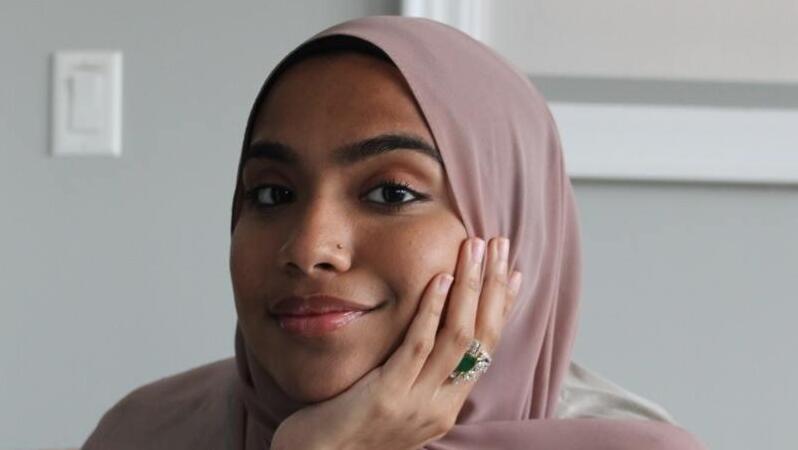Getting your Trinity Audio player ready...
The University of Michigan’s Central Student Government has removed its president, Alifa Chowdhury, and vice president, Elias Atkinson, citing misconduct tied to their controversial pro-Palestinian activism and incitement of violence against Jewish students.
Chowdhury and Atkinson, elected in April amid a wave of campus protests against Israel, spearheaded initiatives that included boycotts targeting Israeli companies or firms allegedly profiting from the Gaza conflict. Their actions put them at odds with university administrators and the Jewish community on campus.
3 View gallery


Pro-Palestinian students at the graduation ceremony at the University of Michigan last May
(Photo: Yaron Tsfadia)
The 40-page resolution outlining their dismissal accused the two leaders of failing in their roles, eroding trust within the student body of approximately 50,000. "Their decisions not only harmed student organizations but also undermined the community’s confidence in its elected leadership,” the resolution stated. “Their inability to protect student representatives, coupled with their endorsement of violence and harassment, represents a severe breach of duty.”
Chowdhury and Atkinson ran on a platform titled “Shut It Down,” promising to sever the university’s ties with companies they claimed supported the Gaza conflict. Early in their tenure, they suspended $1.3 million in annual funding for student clubs—ranging from debate teams to dance groups—until the university complied with their demands.
The funding freeze crippled hundreds of student organizations, prompting backlash from students who accused the duo of disregarding the broader campus community. The funds, derived from mandatory student fees, were blocked at the governance level, leaving clubs scrambling for resources.
University administrators attempted to mitigate the fallout with temporary loans, but tensions escalated. Protests disrupted student government meetings, with reports of physical threats against council members. Chowdhury and Atkinson frequently skipped meetings to avoid reversing their decisions. “The campus became a political battleground, leaving students to bear the brunt,” said the president of one major student club.
Get the Ynetnews app on your smartphone: Google Play: https://bit.ly/4eJ37pE | Apple App Store: https://bit.ly/3ZL7iNv
The unrest peaked on Oct. 8, when Chowdhury and Atkinson encouraged protesters to storm a meeting discussing the funding freeze. Jewish council members reported threats, verbal assaults and even spitting incidents during the disruption. Additional allegations against Chowdhury included unauthorized changes to the student government’s official Instagram account credentials.
The Jewish student population at the University of Michigan is among the largest at U.S. public universities, with roughly 6,500 members, including 5,000 undergraduates and 1,500 graduate students.
In tandem with their removal, pro-Palestinian students filed a lawsuit this week against the university, alleging constitutional rights violations stemming from the administration’s handling of anti-Israel protests. Filed in Michigan’s district court, the lawsuit accuses the university of disproportionately targeting pro-Palestinian students with disciplinary actions, including campus bans, job terminations, and employment restrictions.
The lawsuit details incidents such as arrests during a 2023 sit-in at the university president’s office, where law enforcement from 10 counties was present. Protesters reported physical mistreatment, including one instance where a student’s hijab was forcibly removed.
The university has not commented on the allegations.




